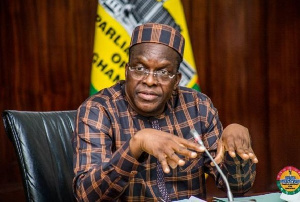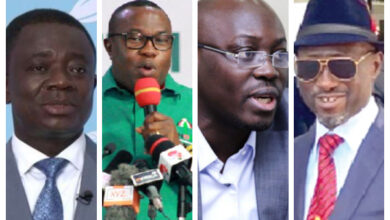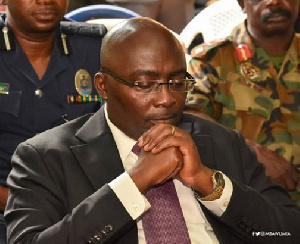Here is why parliament’s plan to use local languages may not work

Parliament has revealed its intention to adopt the use of local languages on the floor of the House, as part of its new Standing Orders.
The Speaker of Parliament, Alban Bagbin, made this announcement on February 16, 2024.
This, according to Order 63 of the House, states that Members of Parliament (MPs) will be free to use any of the local languages, as long as they are interpreted and translated for the benefit of all.
In communicating this, Speaker Bagbin said he had tasked some key committees in parliament to do their homework and come out with suggestions that would help the house execute this plan effectively.
Alban Bagbin also said that all the necessary facilities, such as translators and gadgets, will be provided to ensure a smooth implementation. He said the move is aimed at promoting and preserving the Ghanaian culture and preventing the local languages from dying out.
But using local languages in parliament is not new, as it has been proposed and debated on several times.
Some MPs and stakeholders have argued that using local languages will enhance the participation and representation of the MPs, especially those who are not fluent in English, the country’s official language.
They have also claimed that using local languages will make the parliamentary proceedings more accessible and understandable to the public, who can follow the debates and discussions in their respective local languages.
However, using local languages in parliament also raises some questions and concerns, which may make it difficult or impractical to implement. It is really hard to imagine how this is going to work out.
The closest scenario could be what happened in the Bible; The Story of the Tower of Babel.
For those who are not so familiar with the story, in the book of Genesis, the people of Babel wanted to make a name for themselves by building a mighty city and a tower with its top in the heavens. But God disrupted the work by confusing the language of the workers so that they could no longer understand one another. The city was never completed, and the people were scattered over the face of the earth.
That was a brief storytime.
Now, if parliament goes ahead with the decision to use local languages in the House, there is a high possibility that confusion could just erupt and Ghana’s laws may never get passed.
Numerous local language
Unlike other countries with fewer local languages, Ghana is home to over 80 major languages – and even more minor ones, each one with its unique features and characteristics.
These languages are mainly spoken in rural areas, and their usage has been declining due to urbanisation and the dominance of English for a very long. It is safe to say that almost every MP has a dialect that is distinct from each other. A case in point is the widely spoken Akan language, which has other forms of Twi; Asante Twi, Akuapem Twi, Fanti Twi, Sefwi Twi, etc. Some of these forms of Twi are going extinct and if what Speaker Bagbin intimates when he says it must be spoken in parliament to be preserved, ideally, that is something that cannot practically be done.
Also, the case of Ahanta comes to play. Ahanta is a language of the Western Region which is near extinction. One of the MPs from the area, Ebenezer Kojo Kum, of the Ahanta West may face a challenge in a way. If parliament is to go ahead with the use of local languages, he would be required to use the Ahanta language in parliament, but the people who will understand the language are of a minority class, seeing that the people who speak Ahanta keep reducing in number.
Parliament is not the ideal place to start with the preservation of the local languages; schools are:
Parliament, typically, is a place where laws are created, debated, and passed. While parliament can enact laws related to language preservation, it may not be the most effective starting point.
In many cases, language preservation might not be the primary focus of parliament, and there could be challenges in garnering widespread support or allocating resources for such initiatives.
Preserving a local language involves various activities such as teaching it in schools, promoting its use in communities, creating written materials, and supporting cultural events. This preservation effort is crucial for maintaining cultural identity, and heritage, and ensuring linguistic diversity. Merely using it in parliament would not preserve it.
Schools play a pivotal role in language preservation. They provide structured environments for teaching languages, including local languages. Integrating the local language into the curriculum helps ensure its transmission to younger generations. Additionally, schools serve as hubs for cultural activities and events that promote the use and appreciation of the local language.
Compared to parliament, schools may be more effective in language preservation due to their direct influence on education and culture. By starting language preservation efforts in schools, there’s a better chance of reaching and engaging with the target audience; children and youth, who are essential for the continuity of the language.
English is still the official language of the country
The constitution of Ghana still recognises English as the official language of the country and states that all official documents and acts shall be in English.
The constitution also states that parliament shall have the power to provide for the use of any other language as an official language, but only by an Act of Parliament. This is to say that, mentioning it and tasking committees to research and suggest how it would be implemented is not a very intentional way to target preserving local languages.
The use of local languages in parliament may require some constitutional amendments or legislative enactments, which may not be easy or feasible to achieve. The use of local languages in parliament may also affect communication and cooperation with other countries and organisations, which may use English or other languages as their official or working languages.
Impact unity and cohesion of the parliament and the nation
The use of local languages may also create or reinforce some divisions or differences among the MPs and the public, based on their ethnic, linguistic, or regional backgrounds.
This is where the case of the people of Babel comes back into perspective.
Some MPs or groups may feel marginalised or discriminated against if their languages are not given equal or adequate attention or representation.
Some MPs or groups may also use their languages as a tool or weapon to advance or defend their interests or agendas, at the expense of others. This may affect the harmony and cooperation of the parliament and the nation and may fuel some conflicts or tensions.
The costs and logistics of providing interpretation and translation services for the various local languages
In the words of Speaker Bagbin, parliament would procure gadgets and technologies that would support the use of local languages in parliament.
The costs and logistics of providing interpretation and translation services for the various local languages would greatly impact the budget of parliament. Ghana has over 80 local languages, although only 11 of them are taught and examined in the basic and senior high school levels. The rest are either endangered or not standardised by the Ghana Education Service (GES).
It will be expensive and cumbersome to hire and train interpreters and translators for all the local languages, and to equip the MPs and the public with the necessary gadgets to access the services. It will also be time-consuming and disruptive to switch from one language to another during the parliamentary sessions. Also, with the advent of the internet, parliamentary sittings are not only streamed to people living in Ghana. Through Facebook, YouTube and other channel options, Ghana’s parliamentary sittings can be accessed all over the world.
Therefore, opting to use local languages in the House tunes Ghanaians off as far as the international communities and interest parties are concerned.
This is definitely the kind of decision the Speaker of Parliament, Alban Bagbin, and parliament as a whole should be quickly re-looking.
Source: www.ghanaweb.com





